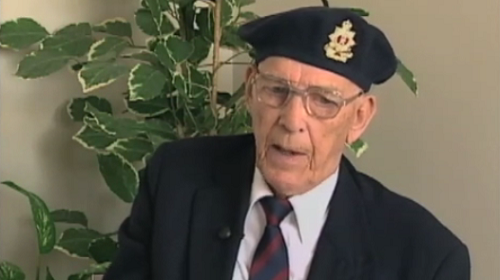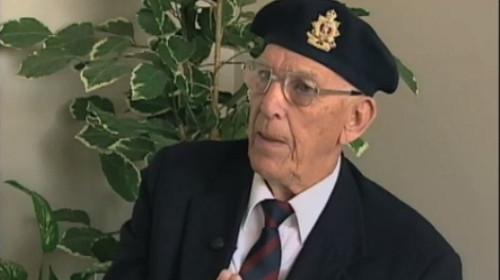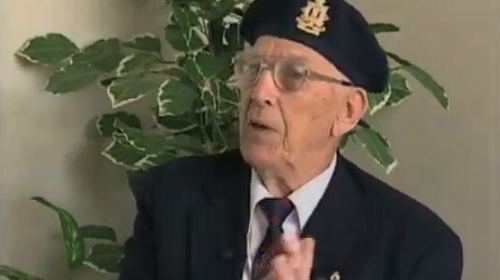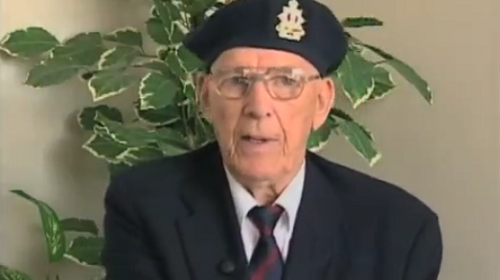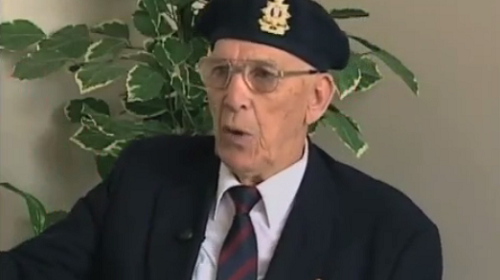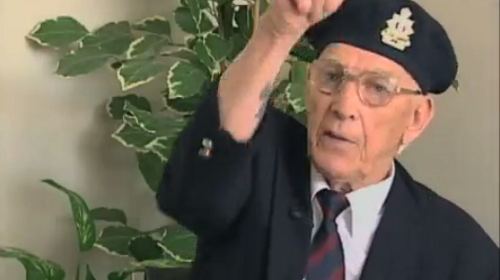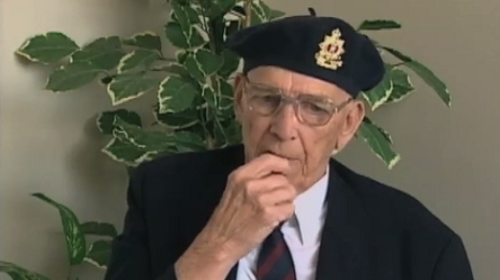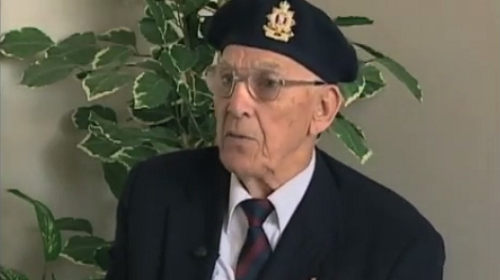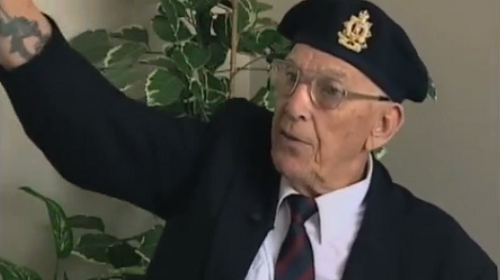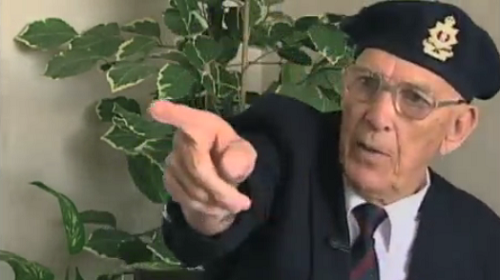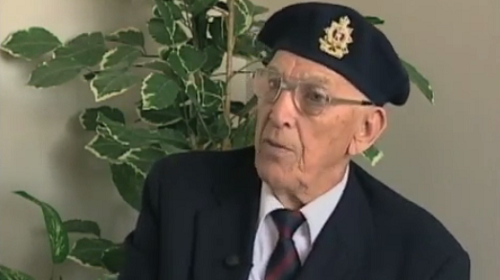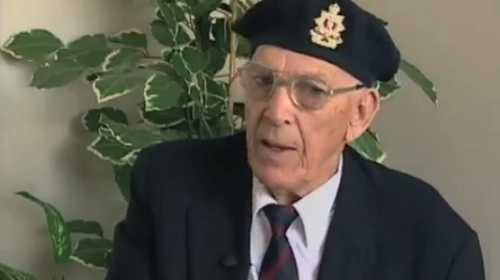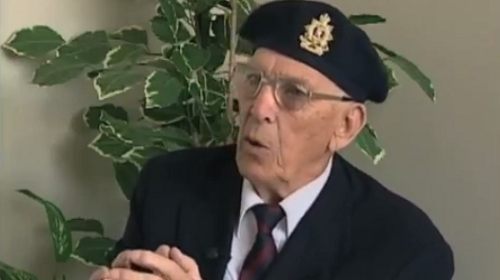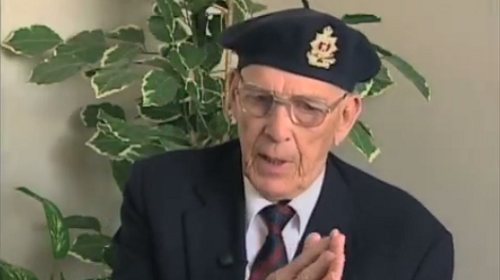Getting Stretchers for the Wounded
Heroes Remember
Getting Stretchers for the Wounded
Transcript
There's people all standing around
and there was German stretchers
and I knew there was all these wounded men down on the beach
and the tide was coming in and they were gonna drown, you see.
So, I believe it was me that initiated that we take stretchers,
we take these stretchers.
There was no order given, the German didn't say and, of course,
we didn't give any orders, our people.
I went down with another man,
there was three, two or three groups of us
and I made three trips to bring wounded men up off the beach.
So I've seen the beach after three times. It was unbelievable.
There was boots with feet in them, there was legs.
There was bits of flesh, there was guts, there was heads.
There was oh, it was unbelievable. These were my regiments.
These were the guys I had lived with
for the last two and a half or so years.
So we went, the third man was Miller, I can even tell ya his name.
He was shot through the groin area.
We got him up, and he was a heavy man, you know,
we went up that ladder with those stretchers
and I don't know how we did it,
it just seemed as though you had super human,
some super strength or energy or something or other.
To get these, you know, it was something that must be done.
So the third time down before they stopped us,
there was two German officers down there and
they were walking along and the one officer
was shooting the worst of the wounded Canadians in the forehead.
And I actually witnessed this. And, you know, it made me sick.
I didn't puke because I had nothing in there to puke.
But, you know, it made me sick.
I thought, God almighty, you know, is there no end to this, this slaughter?
Is there no end, is it gonna go on forever?
This is in a matter of hours,
in a matter of hours this is all happening, not days.
And now maybe he was doing it as a mercy killing, I don't know.
I thought that to ease my feelings, you know.
I thought maybe, maybe it's mercy for, you know,
an act of mercy on his part, but I didn't quite buy it.
I didn't quite buy it, but I tried to think that, you know,
maybe these guys were so bad. I know guys had their guts out.
They were split right down and their guts were out there,
you could see these intestines.
And they were trying to stuff them back in, the men were still alive.
Not crying, not screaming, not moaning, not saying anything.
Description
With such ghastly sights of severely wounded soldiers, Mr. Poolton and company begin to assist while the German soldiers continue to shoot.
John (Jack) Poolton
John (Jack) Abernethy Poolton was born in Toronto, Ontario on January 9, 1918. He was one of seven children. His father farmed 100 acres near Kapuskasing, Ontario. Mr. Poolton enlisted in the Royal Regiment of Canada and provides vivid, clear details of the allied landing at Dieppe, France on August 19, 1942.
Meta Data
- Medium:
- Video
- Owner:
- Veterans Affairs Canada
- Duration:
- 2:50
- Person Interviewed:
- John (Jack) Poolton
- War, Conflict or Mission:
- Second World War
- Battle/Campaign:
- Dieppe
- Branch:
- Army
- Units/Ship:
- Royal Regiment of Canada
- Rank:
- Private
Related Videos
- Date modified:



